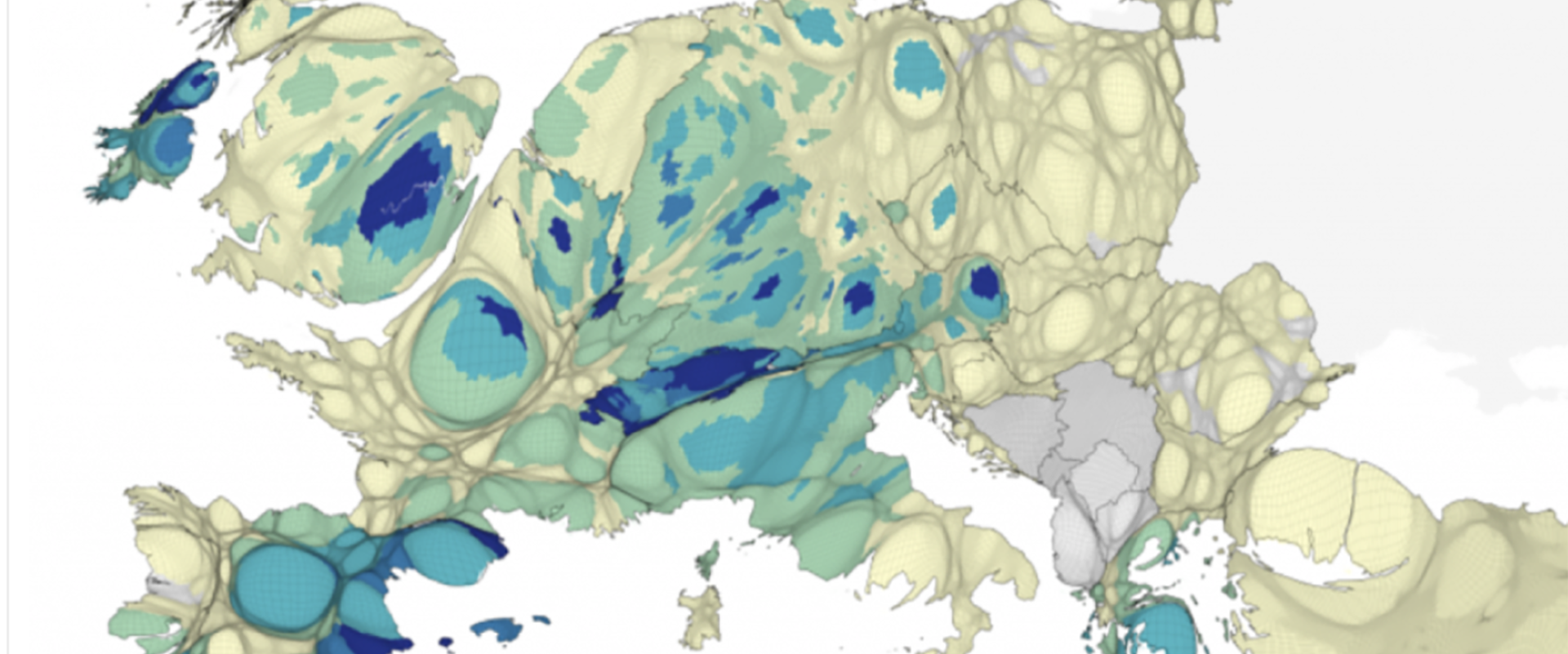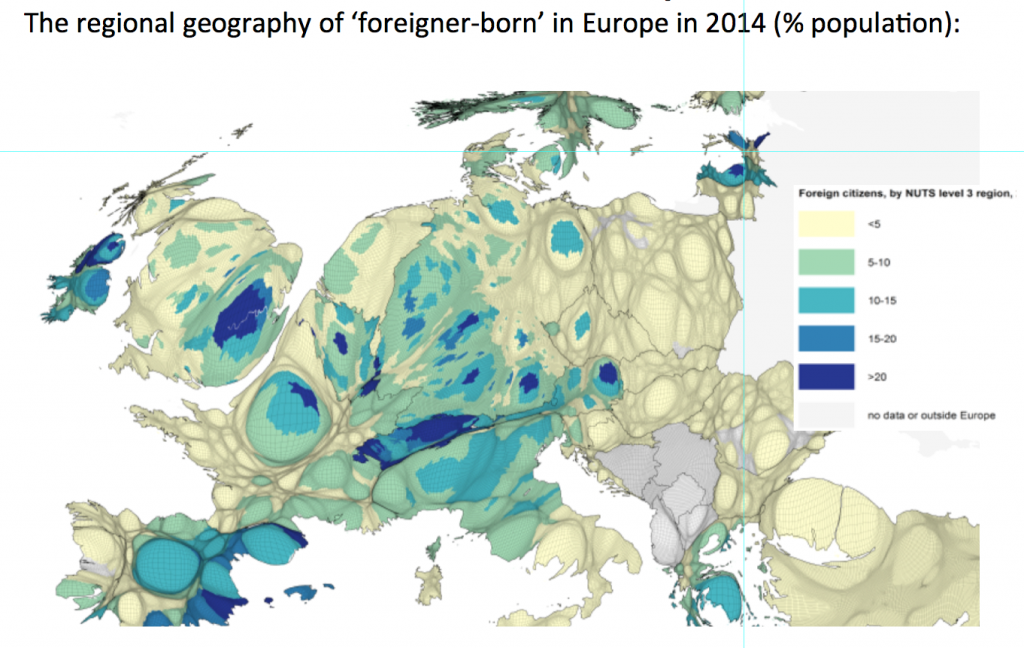What geography can teach us about inequality

Geography is the subject that shows you how everything is connected to everything else.
Royal Geographical Society Lecture, given by Danny Dorling at the University of Portsmouth, UK, February 22nd 2017
This talk begins by showing some new maps of the world stretched to include all of humanity with equal prominence. It then zooms into Europe and considers issues such as population mobility (often called migration in the UK). Where across Europe do you think the most people have settled who have moved from one European country to live in another? The map might surprise you. The bulk of the lecture considers the UK and asks what we and the rest of the world can learn from us being unusual among European countries.

Proportion of international migrants in each region of Europe in 2014, cartogram by Ben Hennig
American political scientist Benjamin Radcliff recently used statistics to show that: ‘The differences in your feeling of well-being living in a Scandinavian country (where welfare programs are large) versus the US are going to be larger than the individual factors in your life. The political differences trump all the individual things you’re supposed to do to make yourself happier – to have fulfilling personal relationships, to have a job, to have more income. The political factors swamp all those individual factors. Countries with high levels of gross domestic product consumed by government have higher levels of personal satisfaction.’ Read more on a Better Politics: here.
It is not just political scientists that are beginning to come round to what most sociologists have presumed to be true for decades. Fewer economists (than used to be the case) now think that being taxed as little as possible results in people better enjoying ‘life, liberty and the pursuit of happiness’. Geographers can study the outcomes of natural experiment of low public spending in the UK and USA. But what can we do if we happen to live and work in the UK or USA in place of providing such good evidence and setting such a bad example?